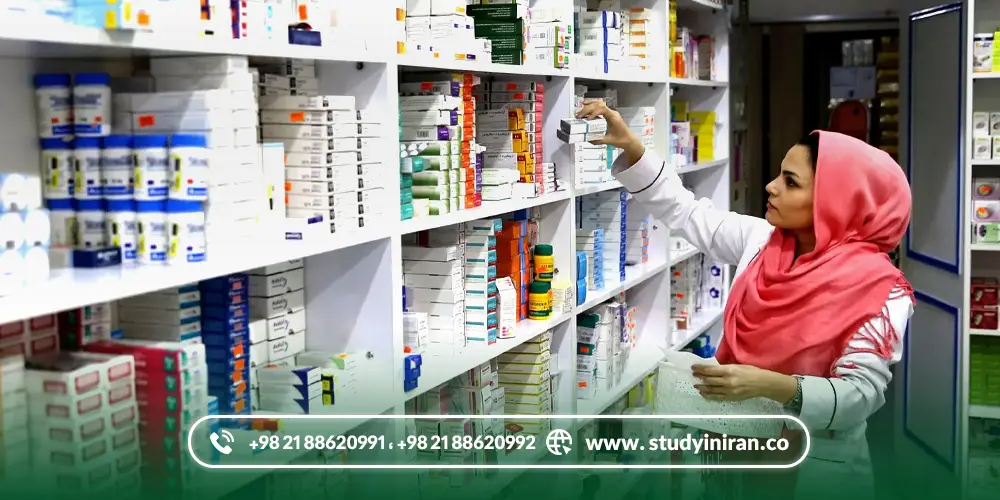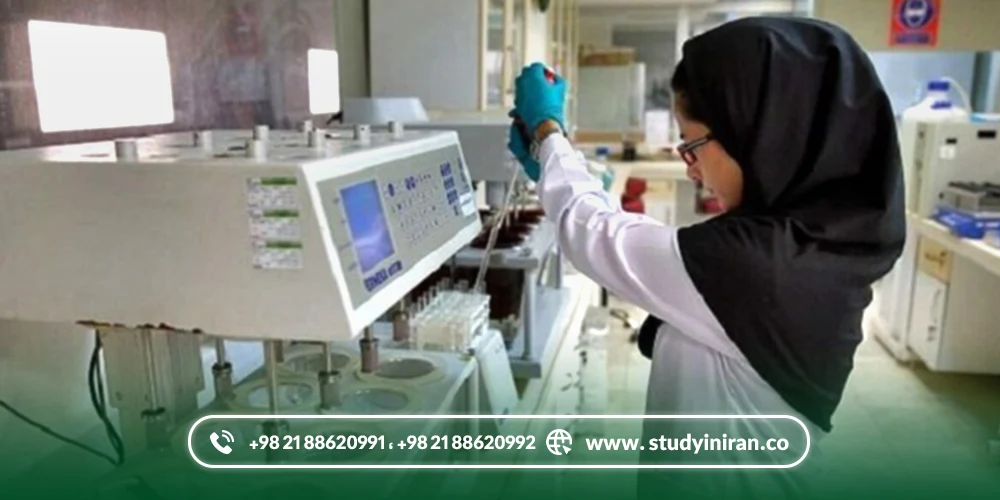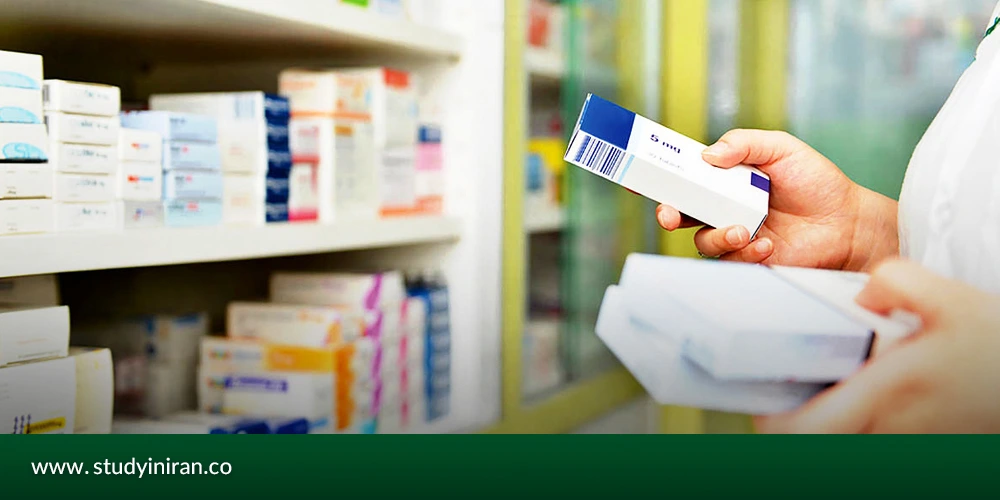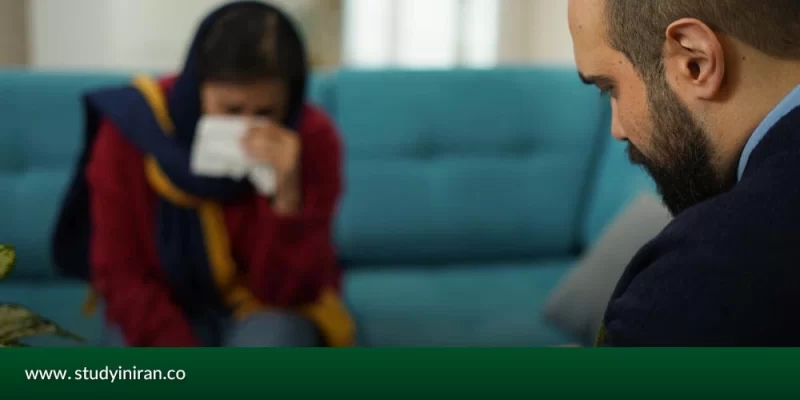Pharmacy is one of the most popular and competitive medical fields in Iran. Leading universities across the country offer comprehensive and up-to-date academic programs designed to prepare students for careers in pharmaceutical research, drug production, and healthcare services. Pharmacy Iran combines rigorous theoretical education with extensive hands-on training, equipping students with the skills needed for drug formulation, distribution, and patient counseling. With high-quality instruction, relatively affordable tuition, and a wide range of career opportunities after graduation, studying pharmacy in Iran has become an attractive option for both domestic and international students.
Pharmacy Specializations in Iran

Pharmacy in Iran offers a wide range of specialized fields tailored to meet academic, research, and industrial needs. These concentrations are available at the master’s (M.Sc.), Ph.D., and in some cases, fellowship levels. The most prominent pharmacy specializations in Iran include:
- Clinical Pharmacy
Focuses on the therapeutic use of medications, drug interactions, treatment monitoring, and providing expert consultation to physicians in clinical settings.
- Medicinal Chemistry
Involves the design, synthesis, and structural analysis of drug molecules and their structure–activity relationships.
- Pharmacology and Toxicology
Studies the effects of drugs and toxins on humans and animals, drug mechanisms, and safety assessments.
- Pharmacognosy
Investigates active compounds in medicinal plants, fungi, and other natural sources to discover new drug candidates.
- Industrial Pharmacy
Centers on the manufacturing processes, packaging, quality control, and standardization of pharmaceuticals at the industrial scale.
- Pharmaceutical Biotechnology
Applies life sciences to develop recombinant drugs, vaccines, enzymes, and other biological products.
- Pharmaceutical Nanotechnology
Utilizes nanotechnology to enhance drug delivery, improve efficacy, and minimize side effects.
- Pharmaceutical Biomaterials
Studies biocompatible materials used in drug carriers, tissue engineering scaffolds, and advanced delivery systems.
- Pharmacoeconomics and Pharmaceutical Management
Analyzes the cost-effectiveness of drugs, formulates drug policies, and manages pharmacy operations and supply chains.
- Radiopharmacy
Designs, produces, and controls radiopharmaceuticals used in medical imaging (e.g., PET, SPECT) and radiotherapy.
- Clinical Toxicology
Focuses on drug poisoning, exposure to toxins, and emergency treatment protocols in acute cases.
- Food and Drug Control
Evaluates the quality and safety of pharmaceuticals and food products using standardized laboratory methods.
These specializations offer broad opportunities for education and research in pharmaceutical sciences and have positioned Iran as a leading center for pharmacy education in the region.
Top Pharmacy Universities in Iran

Iran is home to several high-ranking universities offering quality education and research in the field of pharmacy. Each institution provides various specializations and academic tracks, offering broad opportunities for students. The most prominent pharmacy universities in Iran include:
- Tehran University of Medical Sciences
- Isfahan University of Medical Sciences
- Mashhad University of Medical Sciences
- Tabriz University of Medical Sciences
- Shiraz University of Medical Sciences
- Iran University of Medical Sciences
- Ahvaz Jundishapur University of Medical Sciences
- Kerman University of Medical Sciences
- Isfahan University of Technology
- Shahid Beheshti University of Medical Sciences
Pharmacy Tuition Fees in Iran
Tuition fees for international students studying pharmacy in Iran are typically higher than those for domestic students, ranging from approximately $1,000 to $5,000 USD per semester. The exact amount varies depending on the university. For a more affordable study experience, international applicants are encouraged to apply for Iran scholarships to reduce overall costs.
Requirements for Studying Pharmacy in Iran
To pursue a degree in pharmacy and obtain a student visa for Iran, applicants must meet the following general criteria:
- Academic Qualifications: Applicants should have successfully completed secondary education or its equivalent, with strong academic performance in science subjects such as chemistry, biology, and physics. Requirements may vary by university, but a solid academic record is typically expected.
- Language Proficiency: For programs taught in Persian, full proficiency in the Persian language is required. Some universities offer programs in English, in which case applicants must demonstrate proficiency through standardized tests like TOEFL or IELTS.
- Entrance Examination: Most universities require applicants to take an entrance exam, usually covering biology, chemistry, and physics. The score plays a significant role in the admission process.
- Health Requirements: Due to the practical nature of pharmacy, applicants may need to provide proof of physical health to ensure they can participate in hands-on training and activities.
- Visa Requirements: International students must meet the criteria for obtaining an Iranian student visa, including financial documentation and other necessary paperwork.
- Additional Requirements: Some universities may also require an interview, recommendation letters, or other supplementary documents as part of the admission process.
Required Documents for Studying Pharmacy in Iran

- High School Diploma or Equivalent: An official copy of the diploma or equivalent certificate indicating the completion of secondary education.
- Academic Transcripts: Official transcripts showing grades and completed subjects during high school.
- Language Proficiency Certificate: For Persian-language programs, proof of Persian proficiency; for English programs, a valid TOEFL or IELTS certificate.
- Entrance Exam Results: If required by the university, submission of relevant entrance exam scores.
- Identification Documents: A valid copy of the applicant’s passport or national ID card.
- Passport-Sized Photos: Recent passport-style photographs, typically several copies.
- Health Certificate: If requested by the university, a medical certificate confirming physical ability to pursue pharmaceutical studies.
- Recommendation Letters: If required, academic recommendation letters from teachers or professors.
- Statement of Purpose (SOP): A written explanation of academic and professional goals related to pharmacy.
- Application Form: Completed university application form submitted along with the required documents.
Pharmacy Scholarships in Iran
- Government Scholarships: The Iranian government offers scholarships for both domestic and international students at advanced levels, including pharmacy. These typically cover tuition fees, living expenses, and other study-related costs, and are awarded based on academic merit.
- University Scholarships: Iranian universities provide various scholarship programs to attract and support talented students. These may be based on academic performance, financial need, or specific institutional criteria.
- International Scholarships: Some universities offer dedicated scholarships for international pharmacy students to promote cultural diversity and enhance global collaboration.
- Pharmaceutical Industry Scholarships: Pharmaceutical companies and organizations in Iran may provide financial aid, scholarships, or internship opportunities to pharmacy students.
- Merit-Based Scholarships: These are awarded to students with strong academic records, entrance exam results, or outstanding previous achievements.
- Need-Based Scholarships: Designed to support students facing financial difficulties by helping cover tuition and living expenses.
TUMS School of Pharmacy Scholarship
Tehran University of Medical Sciences (TUMS) offers this scholarship to international students pursuing a Doctor of Pharmacy (Pharm.D), as well as Master’s and Ph.D. degrees in the following fields:
- Food and Drug Control (Ph.D.)
- Pharmaceutical Economics and Management (Ph.D.)
- Medicinal Chemistry (Ph.D.)
- Radiopharmacy (Ph.D.)
- Pharmaceutical Biomaterials (Ph.D.)
- Pharmaceutical Biotechnology (Ph.D.)
- Pharmaceutical Nanotechnology (Ph.D.)
- Pharmaceutics (Ph.D.)
- Pharmacognosy (Ph.D.)
- Clinical Pharmacy (Ph.D.)
- Pharmaceutical Administration (M.Sc.)
- Pharmacology and Toxicology (M.Sc. / Ph.D.)
Scholarship Details
- Type: Category C
- Number of Scholarships: Unlimited
- Host University: Tehran University of Medical Sciences (TUMS)
- Eligibility: Open to all nationalities
- Host Country: Iran
Financial Coverage
All admitted students under Category C will have their first-year expenses covered, including:
- Visa & Registration: $50
- Airport Pickup (Tehran): $57
- Furnished Dormitory: $3,650
- Health Insurance: $152
- Persian Language Classes: $734
- Total Covered by Scholarship: $4,643
These expenses are fully funded by TUMS for international students through this scholarship program.
Pharmacy Graduate Jobs and Salaries in Iran

- Pharmacist
Graduates work as licensed pharmacists in retail pharmacies, hospitals, and healthcare centers. Their duties include dispensing medications, advising patients on drug use, and ensuring safe and effective treatment.
Average Monthly Salary: 15–30 million IRR (~$357–$714)
- Pharmaceutical Sales Representative
Employment in pharmaceutical companies to promote and market products to healthcare professionals and pharmacies.
Average Monthly Salary: 20–35 million IRR (~$476–$833)
- Pharmaceutical Research & Development (R&D)
Working in the R&D departments of pharmaceutical companies, conducting drug development and clinical trials.
Average Monthly Salary: 25–50 million IRR (~$595–$1,190)
- Regulatory Affairs Specialist
Responsible for ensuring compliance with pharmaceutical regulations and preparing documentation for drug approvals.
Average Monthly Salary: 25–40 million IRR (~$595–$952)
- Quality Control & Quality Assurance
Involved in ensuring the safety and quality of pharmaceutical products through laboratory testing and compliance monitoring.
Average Monthly Salary: 20–40 million IRR (~$476–$952)
- Academic or Research Positions
Opportunities to pursue higher education and work as researchers or lecturers at universities and research institutes.
Salary: Varies depending on the institution and level of experience.
Final Word
Studying pharmacy in Iran presents a unique opportunity for international students to begin their academic and professional journey at reputable universities with strong educational and research infrastructure. Affordable tuition, high-quality instruction, renowned faculty, and various scholarship opportunities make Iran an attractive destination for aspiring pharmacists. If you’re ready to take the first step, the Study in Iran initiative can serve as a reliable guide for choosing the right university, securing scholarships, and navigating the admission process.
Frequently Asked Questions
The undergraduate pharmacy program (Pharm.D) typically takes five years to complete.
Yes, most universities offer pharmacy programs in Persian. However, some may provide English-language programs as well.
Applicants must have a high school diploma in experimental sciences, pass the national entrance exam (Konkur), and meet the minimum score requirements.
Yes, Iranian medical universities accept international students, though proficiency in Persian and meeting visa requirements are typically necessary.
Tuition is relatively low for Iranian students at public universities, while it varies and is generally higher for international students.
Yes, graduates can continue their education in specialized fields at the master’s or Ph.D. level.
Yes, pharmacists are in demand in retail pharmacies, pharmaceutical companies, and research centers.
Yes, students usually complete internships in pharmacies and healthcare centers as part of their training.
A strong interest in biology and chemistry, attention to detail, teamwork abilities, and good communication skills are key.






0 Reply To “Studying Pharmacy in Iran”